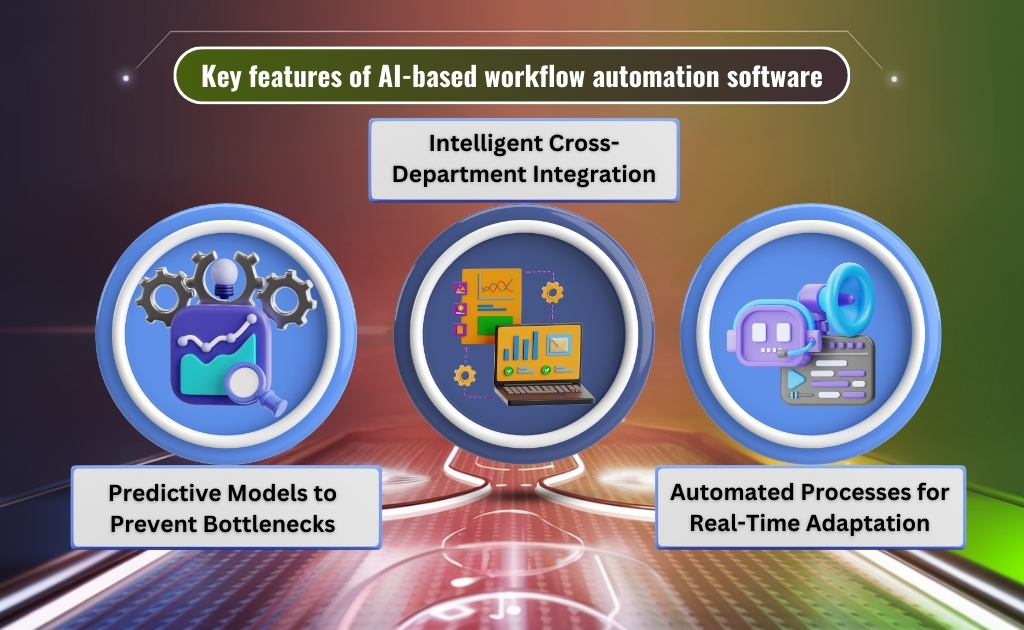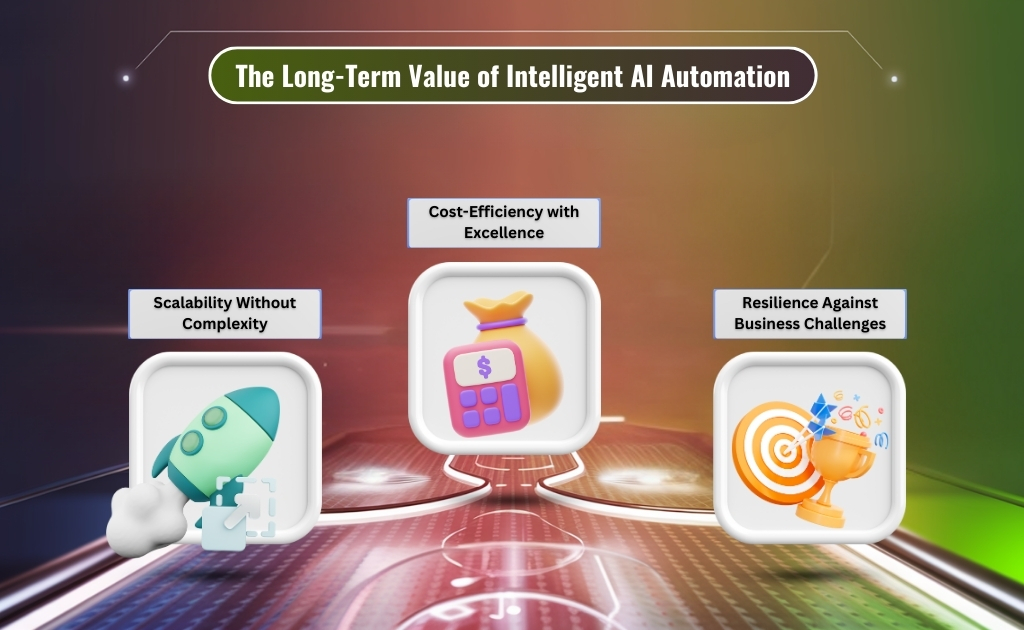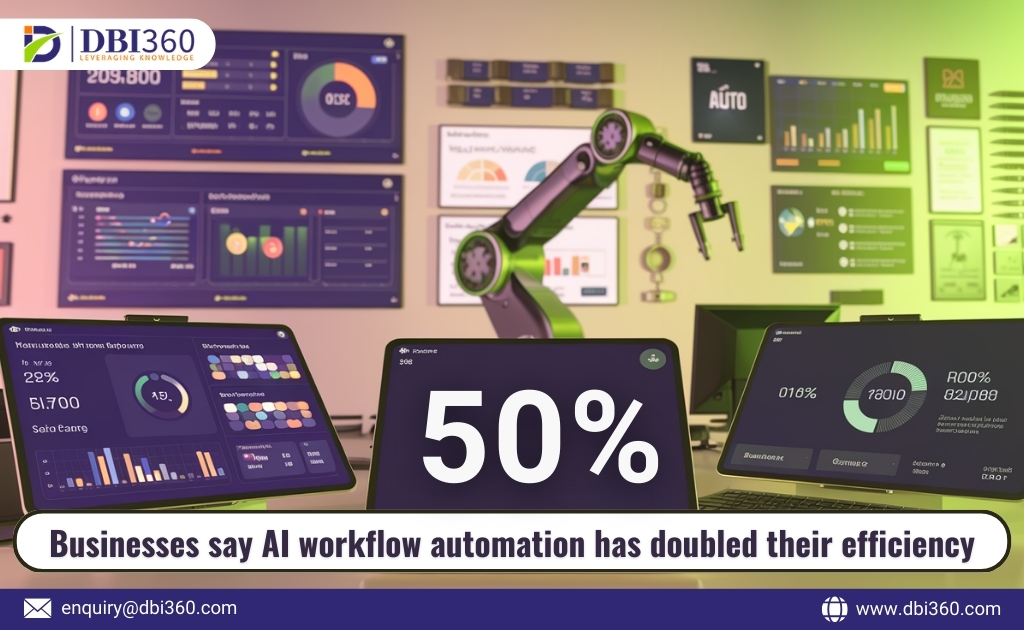Automation is no longer just a tool for saving time—it’s a necessity for staying competitive. Yet, traditional automation methods often fall short when faced with the complexities of modern business processes. What enterprises need now is more than just automation; they need intelligence.
This is where AI-based workflow automation software steps in. By combining automation with artificial intelligence, businesses can not only automate repetitive tasks but also adapt dynamically to changing needs, predict bottlenecks, and make data-driven decisions in real-time.
Let’s delve deeper into how this technology is shaping smarter operations and creating long-term value.
The Foundation of Intelligent Operations
Traditional workflow automation systems are designed to follow predefined rules. While useful for repetitive tasks, these systems struggle when faced with unexpected scenarios or evolving workflows.
AI-based workflow automation software goes beyond simple task automation. It introduces intelligence into operations by:
- Analyzing patterns and learning from past workflows.
- Adapting to real-time data inputs.
- Providing actionable insights to support decision-making.
For example, in a business handling complex supply chains, AI-based software can dynamically adjust inventory levels based on real-time demand, supplier performance, and historical trends. This adaptability reduces waste and ensures smoother operations.
Core Capabilities of AI-based workflow automation software
AI for business process automation brings a host of advanced features to workflow. Here are the key capabilities driving its effectiveness:
1. Predictive Models that Anticipate Bottlenecks
AI algorithms can analyze data patterns to identify potential disruptions before they occur.
- Predict delivery delays based on supplier history.
- Flag potential compliance risks in documentation workflows.
This proactive approach minimizes downtime and ensures smoother operations.
2. Autonomous Workflows that Adapt to Real-Time Changes
Unlike static systems, AI-based workflows are designed to adjust dynamically.
- Shift priorities based on changing project deadlines.
- Adapt manufacturing schedules based on real-time IoT sensor data.
Such flexibility ensures that businesses remain agile in unpredictable environments.
3. Intelligent Orchestration Across Departments
AI workflows connect and coordinate tasks across multiple teams.
- Automatically assign tasks to the most suitable team members.
- Streamline approvals by routing documents to the right stakeholders.
This orchestration not only reduces manual effort but also improves collaboration and accountability.

Practical Use Cases for Modern Enterprises
AI-based workflow automation software isn’t just theoretical—it’s being applied in meaningful ways across industries. Here are a few practical examples:
1. Automating Compliance-Driven Workflows in Regulated Industries
Industries like healthcare, finance, and manufacturing often face stringent regulatory requirements. AI can:
- Automate the tracking and updating of compliance documents.
- Alert teams to changes in regulations that require immediate attention.
- Ensure accurate reporting to regulatory bodies.
2. AI-Driven Task Allocation for Hybrid and Remote Teams
Managing hybrid and remote teams can be challenging without proper task allocation. AI makes this easier by:
- Assigning tasks based on team member availability and skill sets.
- Monitoring progress and reallocating resources as needed.
This ensures projects stay on track, even in distributed work environments.
3. Integrating with IoT for Real-Time Manufacturing Insights
In manufacturing, IoT devices generate a wealth of data that can overwhelm traditional systems. AI workflows can:
- Monitor real-time data from IoT devices to detect anomalies in equipment performance.
- Automate maintenance schedules based on predictive analytics.
This integration improves efficiency and reduces unplanned downtime.
The Long-Term Value of Intelligent Automation
Investing in AI-based workflow automation software isn’t just about immediate efficiency gains—it’s about building a foundation for sustainable growth.
1. Scalability Without Increasing Complexity
As businesses grow, their processes often become more complicated. AI automation simplifies this by scaling workflows without adding manual overhead.
2. Cost-Efficiency Paired with Operational Excellence
Automating repetitive tasks saves time, while AI’s predictive capabilities reduce costly errors. The result is a leaner, more efficient operation.
3. Building Resilience Against Evolving Business Challenges
AI workflows help businesses stay agile by continuously learning and adapting. This resilience is crucial in a world where market conditions and customer expectations are constantly changing.
For example, during sudden supply chain disruptions, AI can reroute tasks or suggest alternative suppliers, ensuring minimal impact on operations.

Conclusion
AI-based workflow automation software is redefining how businesses operate. It’s not just about automating repetitive tasks but about enabling smarter, data-driven decisions and adaptive workflows. With capabilities like predictive modeling, autonomous task allocation, and real-time orchestration, these tools are becoming indispensable for modern enterprises.
As the business landscape continues to evolve, the companies that embrace intelligent automation will be the ones that stay ahead of the curve.
Ready to see how AI workflow automation software can transform your operations? Visit our website today for more information.

